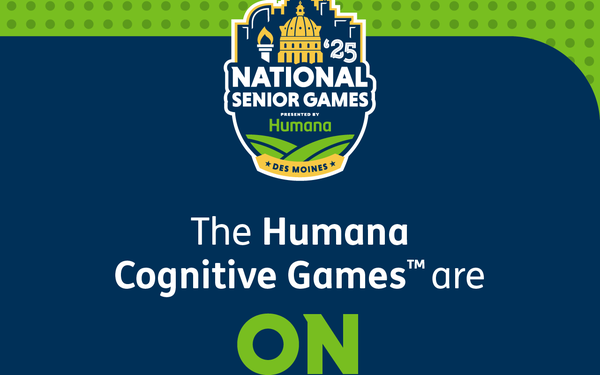The Verdict: Was a 5-Hour Full Body Health Assessment Truly Worth It?
:max_bytes(150000):strip_icc()/Health-GettyImages-2023731165-abe7c24161da4b2eba5d978927525e32.jpg)
For individuals seeking a deeper understanding of their health beyond routine physicals, comprehensive performance health assessments offer an in-depth look at various physiological markers. One such offering, experienced by a health editor from Health.com through Cenegenics, provides a detailed analysis of metabolic, cognitive, and physical health, going beyond typical blood tests and yearly check-ups. This assessment incorporates advanced imaging, extensive lab work, functional fitness testing, vascular health screenings, and brain performance evaluations to construct a complete picture of an individual's current health status and guide targeted interventions for long-term well-being.
The assessment process begins with a thorough health history and lifestyle intake, involving a detailed online questionnaire covering personal and family health history, medications, lifestyle habits, sleep, and stress. This initial step personalizes the subsequent experience. Following this, an in-home blood draw collects samples for an extensive panel measuring over 270 biomarkers. These biomarkers include common metrics like blood sugar and cholesterol, hormones influencing metabolism and mood, inflammatory markers, and genetic variations that indicate how the body processes nutrients, providing an unparalleled view of internal health.
The core of the assessment unfolds during a five-hour in-person visit. This involves several key components: a performance health consultation to discuss current health, habits, and goals; a full-body Dual X-ray Absorptiometry (DEXA) scan to measure fat distribution (including visceral fat), lean muscle mass, and bone mineral density; and physical fitness testing, including max sit-ups, push-ups, and a 3-minute plank to evaluate muscular endurance. Vascular health is assessed via a non-invasive carotid artery ultrasound (CIMT) to detect early signs of cardiovascular disease. Neurocognitive testing, comprising timed computer tasks for reaction time, memory, and processing speed, combined with a brain electroencephalogram (EEG), evaluates brain performance. The day concludes with a physician consultation where all test results are reviewed and explained in practical terms, offering actionable insights.
The personalized results provided unexpected and encouraging insights for the participant. Despite initial concerns, the assessment confirmed excellent metabolic health and dense bones. It also revealed a fast reaction time but highlighted a need to resume strength training to preserve muscle mass and prevent osteoporosis, having previously shifted focus from weightlifting to activities like yoga. Based on these findings, personalized recommendations were given, including consistent resistance training, aiming for 1 gram of protein per pound of lean mass daily (with suggested protein sources like whey isolate or a pea/rice combination), and daily creatine monohydrate supplementation (5 grams) to support muscle performance and retention. Follow-up tests were also recommended with a regular doctor based on bloodwork indications. These recommendations were practical and have already led to noticeable improvements in energy, focus, and recovery within weeks.
Before undertaking such an assessment, several factors should be considered. It is crucial to consult with one's primary care physician, as these evaluations complement rather than replace individualized medical care, especially for chronic conditions. Many diagnostics included in these programs might be accessible through a primary care provider or specialist and could be covered by insurance, making cost a significant consideration. The applicability of certain tests, such as neurocognitive testing, may vary with age and risk factors (e.g., more beneficial for older adults or those with a history of stroke/concussion), whereas a DEXA scan offers valuable insights regardless of age. Finally, individuals should be prepared for the substantial volume of information received and appreciate a thoughtful explanation of results, particularly if they tend to feel anxious around medical data.
Ultimately, a comprehensive performance health assessment provides an unparalleled level of insight compared to standard doctor visits, revealing not only current health status but also actionable strategies for long-term health and performance. While beneficial for data-motivated individuals, the frequency of such assessments may vary based on age and risk factors, with the participant in their 30s planning a return in 10-15 years. These assessments can be valuable for optimizing performance, mitigating disease risk, or simply gaining a deeper understanding of one's body, provided the investment aligns with one's budget and specific health goals.
You may also like...
Champions League Madness: Europe's Elite Deliver Drama, Goals, and Controversy

The Champions League returned with intense clashes as Liverpool secured a dramatic 3-2 victory over Atletico Madrid, hig...
Boxing World Grieves: Stars Pay Emotional Tributes to Legend Ricky Hatton

The boxing world mourns the loss of 'The Hitman' Ricky Hatton, who passed away at 46. Tributes have poured in from sport...
Critics Hail 'One Battle After Another' as a Paul Thomas Anderson Masterpiece!

Paul Thomas Anderson's latest film, <i>One Battle After Another</i>, is hailed as an instant masterpiece, blending actio...
South Park Stunner: Creators Announce Last-Minute Episode Delay!

The latest episode of South Park Season 27 has been delayed, with creators Trey Parker and Matt Stone citing production ...
Sabrina Carpenter's Star Power Ignites Civic Action, Driving 30,000 Engagements in Just Half a Day!

Pop star Sabrina Carpenter is partnering with HeadCount to drive voter engagement during her Short n’ Sweet Tour, offeri...
Horror in Music World: Missing Teen Found Dead in D4vd's Car

The body discovered in a Tesla registered to musician D4vd has been identified as 15-year-old Celeste Rivas, who was rep...
Ed Sheeran's Candid Revelation: The Price of Fame and the Pursuit of True Happiness

Ed Sheeran opens up about his newfound happiness, attributing it to a balanced life focused on family and his music care...
Pop Icon Robbie Williams Delays New LP Fearing Threat to Historic Record Bid

The music industry is alive with new developments as Robbie Williams delays his album to avoid clashing with Taylor Swif...
